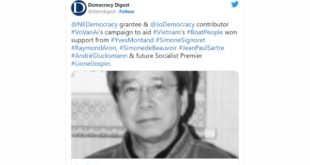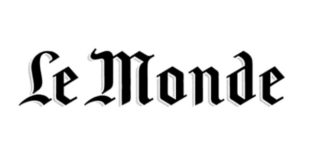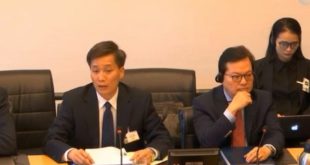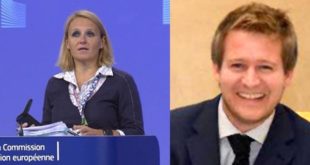HANOI, 9 April 2007 (AFP) – A US State Department delegation on Monday paid a rare visit to a dissident Buddhist leader who is under “pagoda arrest” in communist Vietnam, the monk’s overseas supporters said.
The reported visit comes as pressure is rising in Washington for Vietnam, a former US enemy and growing trade partner, to allow greater religious and political freedoms, following a high-profile dissident trial late last month.
US Deputy Assistant Secretary of State for East Asia and the Pacific Eric John visited Thich Quang Do, deputy leader of the outlawed Unified Buddhist Church of Vietnam (UBCV), said a Paris-based church spokesman.
The 78-year-old monk, who last year won Norway’s Rafto human rights prize, told his visitors Vietnam was repressing pro-democracy and religious groups, including the UBCV, ethnic Christian Montagnards and the Hoa Hao group.
“In the wake of Hanoi’s ruthless crackdown on democracy movements today, it is the moment for President Bush to take a firm stand for religious freedom, human rights and democracy in Vietnam,” he reportedly said.
He also called on the United States to link economic relations with human rights and use trade and aid to press Hanoi to respect its international commitments, spokesman Vo Van Ai said in a statement.
John was joined by US Consul General Seth Winnick for the two-hour talk at the Thanh Minh Zen Monastery in southern Ho Chi Minh City, said the UBCV.
It was not immediately clear how the reported visit was organised. Last month police briefly detained three Norwegians, including members of the Rafto Foundation, as they tried to visit Thich Quang Do.
Tensions between Washington and Hanoi have risen recently over human rights.
The State Department said on March 30 it was “deeply troubled” by the eight-year jail term of dissident Roman Catholic priest Father Nguyen Van Ly on charges of spreading propaganda against the communist state.
US Ambassador Michael Marine last week called on Vietnam to free several dissidents and open up its political system. He also invited the wives of several activists to his house, where they were blocked by police.
The UBCV has been banned since 1981 for refusing to submit to Communist Party supervision. Patriarch Thich Huyen Quang and his deputy Thich Quang Do have been under what activists call “pagoda arrest” since.
Human rights group the Rafto Foundation said it chose to honour Do because he had “devoted his life to the advancement of justice and the Buddhist tradition of non-violence, tolerance and compassion.”
Four past recipients of the Rafto prize, including Aung San Suu Kyi of Myanmar and Jose Ramos-Horta of East Timor, later won the Nobel Peace Prize.
 Quê Me Quê Me: Action for democracy in Vietnam & Vietnam Committee on Human Rights
Quê Me Quê Me: Action for democracy in Vietnam & Vietnam Committee on Human Rights




